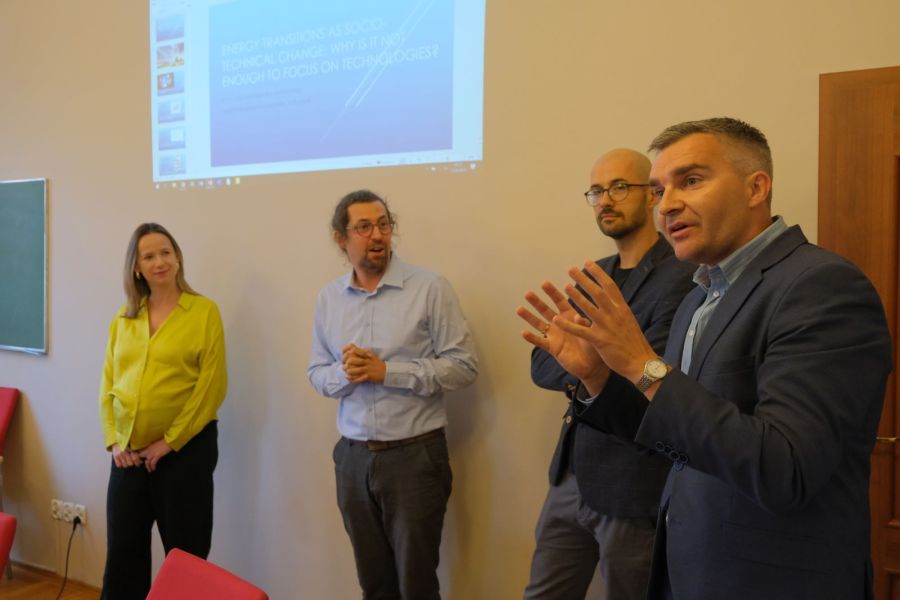Fit4Future Summer School on Energy Transition is an initiative of three universities: Brandenburg University of Technology, Adam Mickiewicz University, and Poznań University of Technology. Participants in the summer school were hosted in Poznań for one week (9–13 September). It was an effort to bring the energy transition subject closer to PhD students and undergraduates.
‘The summer school is organised on the initiative of Prof. Melanie Jaeger-Erben from the Technical University of Cottbus,’ says Maciej Frąckowiak, PhD, from the AMU Faculty of Sociology. He adds, "She was the one who initiated and coordinated the research project on energy conservation at a time of rising prices due to Russia's aggressive war in Ukraine. We conducted a research project together, we wrote texts collectively, and there was a proposal to participate in an event that popularises this topic, not only among academics but also tries to make it attractive to students. The idea is to encourage them to invest more energy and effort in the subject of the energy transition, a crucial issue considering the modern challenges and what awaits us in the coming years,' says Dr Frąckowiak.
Prof. Ryszard Necel from the Faculty of Sociology adds, "The international dimension is most crucial. The exchange between scientists from the technical sciences and the humanities is also a highly significant aspect. It is exciting to talk about thermo-modernization in the context of not only improving the process in technical terms but also discussing the social consequences. We should consult on such issues since there are different stakeholder groups to be concerned about," says Prof. Necel.
Przemysław Pluciński, Ph.D., who investigates social tensions related to the energy transition, also gave an overview of his project during the summer school:
"The primary focus is set on the social tensions erupting against the backdrop of the need for a sustainable transition, with a particular emphasis on the discussion around energy policies and the various strategies that European countries are often undertaking in a rather isolated approach in response to climate challenges. Conversely, we also have wars - events that were uncontrollable and unexpected for certain actors, so there are some spaces of inconsistency here when it comes to energy policies. The targets are set—fit for 55, decarbonisation targets by 2030—and, these are already starting to be discussed as unrealistic and difficult to achieve," notes Dr Pluciński.
photo: Przemysław Stanula






